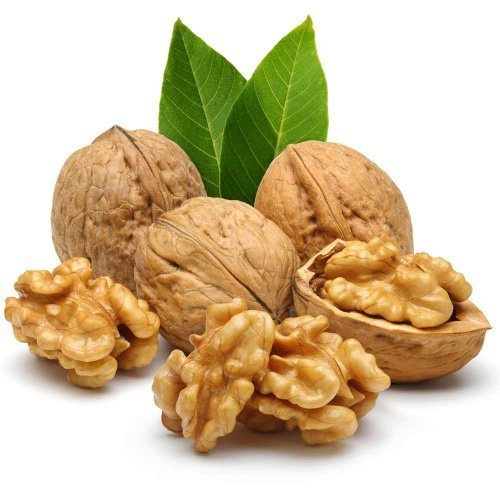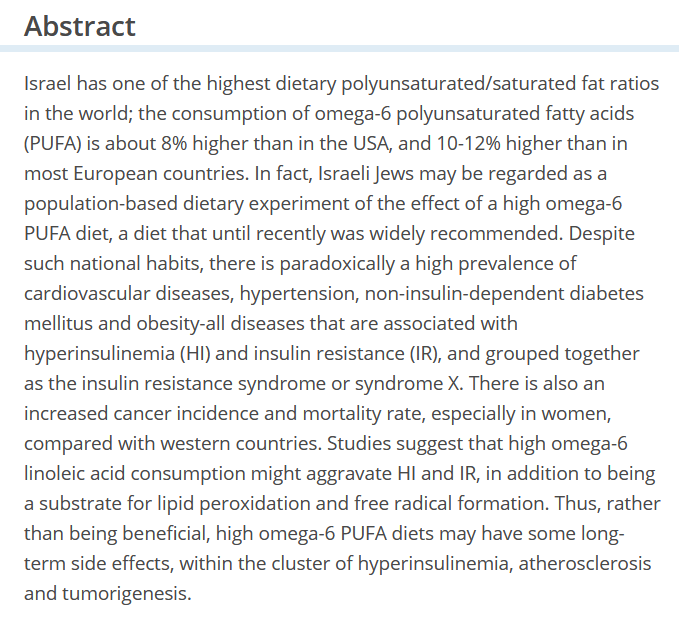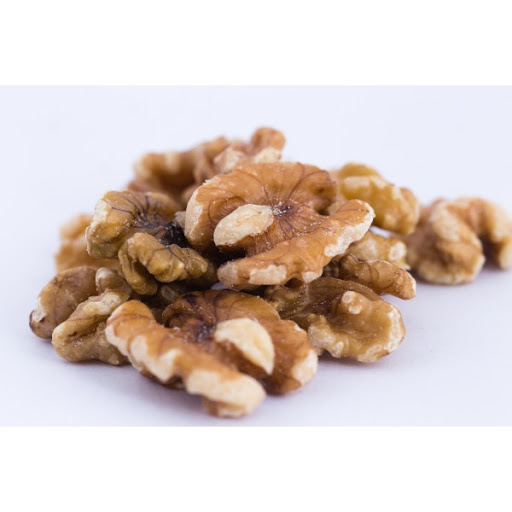Source which actually proves this?
Long term health with Keto
Here’s a start:
High-quality protein consumption optimizes protein metabolism at both the whole-body and skeletal-muscle level, especially in older people. Plant-based protein sources that are rich in fiber and micronutrients may be valuable [127], but they have lower anabolic potential than animal-based proteins
Only problem: because of religious restrictions, they eat a lot of PUFAs.
https://europepmc.org/article/med/8960090
We have a relative who is Jewish and the rule that dairy and meat can’t be mixed is a tough one. That’s why they like vegetable oils, margarine, etc.
And Peter Ballerstedt, @grassbased (Twitter), has done a ton of research on “crude protein” (as reported for plants) versus meat protein.
There are plants that have all nine essential amino acids, soy and quinoa to name two, but how much do you have to eat to get a reasonable amount?
Ketosis is also the default state of the human body … when you’re born  [How bad can it be for your health?]
[How bad can it be for your health?]
The bias with the study you linked is that they compared low quality plant protein sources that require cooking and would not have been eaten in our early evolution because they require processing and cooking.
Why are europeans technologically advanced while other humans living elsewhere aren’t when the majority of human societies eat some type of meat?
They don’t eat PUFA’s, they consume seed oils. It’s like comparing berries to refined sugar.
Please pick a cut. I don’t want to be bias by cherry picking. 
@anon81060937 Here’s the full list of ‘high quality’ plant foods:
Coconut oil
Palm oil
Palm kernal oil
Cacao butter
There is no such thing as ‘high quality’ plant protein.
The amino content of various cuts of beef is pretty similar. The amino acid profile tends to vary somewhat with the breed, of course, and interestingly, the essential amino acid content becomes higher as the animal ages.
Fixed it for you. 
There isn’t in North America due to the incompetence of those living here.
High quality plant protein. Not grown in North America.

Inedible plant protein. Grown in North America.
Your last post seems to indicate that walnuts are both grown and not grown in North America. Is that what you intended to say?
And what do walnuts have to do with protein quality? Or am I missing something? I thought the definition of “high-quality” where protein is concerned had to do with the proportions of the essential amino acids.
@anon81060937 I was there when Diet for a Small Planet came out. Mixing and matching plant proteins to get something approaching a ‘complete’ protein/amino acid profile in the correct proportions was the game. Failure was the inevitable result. Not only that, but the bioavailability of plant proteins is only a fraction of meat proteins.
Walnuts do not contain all of the amino acids your body requires. While the nuts have a high concentration of amino acids such as tryptophan, valine, leucine and threonine, they lack others like methionine, alanine and proline. Because of this, walnuts are considered an incomplete protein.
It’s too bad coconut oil gives you diarrhea. For a plant it has a remarkable fatty acid profile as good or better than some meats (pork/lard/chicken). Red palm oil and palm kernal oil have very different fatty acid profiles, even though from the same plant! Cacao, too, has a remarkable fatty acid profile. Too bad it keeps you awake. Do you have a sensitivity to caffeine, as well?
That only proves the point that plants are a poor source of protein, period.
99.9% Of the so-called quality plant protein sources did not exist for all practical purposes 100 years ago, much less pre-agriculture.
No, they eat PUFAs. They eat PUFAs. Did you not read the study?
Seriously, PUFAs (in seed oils, chicken, pork, nuts, etc.) are believed to be the worst thing we can eat by many, including me.
Yeah, that book and Pritikin started me on a very low fat, near vegetarian diet for a long time, which lead to depression, mood swings, etc. I remember thinking “brown rice + beans = completely protein!”, which is complete BS.
I stumbled accross this lecture a few days ago:
Dr. Chris Knobbe - ‘Diseases of Civilization: Are Seed Oil Excesses the Unifying Mechanism?’
Mostly correlation stuff, but still compelling… Particularly, an isolated community that eats 95% carbs in the form of sweet potatoes, but very little PUFA’s…
They have virtually no obesity, CVD or T2D…
What I meant is that the majority of walnuts grown in North America are garbage because the growers here are incompetent but there’s the exception. This is why high quality plant protein seems like a myth unless you’ve tasted what the world has to offer.
I see it as meat(muscle) as an incomplete protein for the brain. Meat has never woke me up like walnuts (brain food).
Now I understand why someone on a carnivore diet needs to eat nose to tail to be healthy.
I’m sensitive to caffeine because I have enough adenosine.



